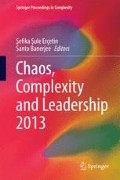Abstract
Predictions play a key role in assuring the status of “rationality” in decisions. Nevertheless, in the field of social sciences and economics, predictions fail to correctly depict the oncoming scenarios. Why is it so difficult to achieve quantitative prediction of social and economic systems? Can science provide reliable predictions of social and economic paths that can be used to implement effective interventions? As in the notorious “El Farol bar problem” depicted by Brian Arthur (Am Econ Rev 84:406–411, 1994), the validity of predictive models is more a social issue than a matter of good mathematics. Predictability in social systems is due to limited knowledge of society and human behavior. We do not yet have worldwide, quantitative knowledge of human social behavior; for instance, the perception of certain issues or the predisposition to adopt certain behaviors. Though tremendous progress has been made in recent years in data gathering thanks to the development of new technologies and the consequent increase in computational power, social and economic models still rely on assumptions of rationality that undermine their predictive effectiveness. Through some theoretical and epistemological reflections, we propose a way in which the cybernetic paradigm of complexity management can be used for better decision-making in complex scenarios with a comprising, dynamic, and evolving approach. We will show how a cybernetic approach can help to overcome the fear of uncertainty and serve as an effective tool for improving decisions and actions.
Access this chapter
Tax calculation will be finalised at checkout
Purchases are for personal use only
References
Arthur BW (1994) Inductive reasoning and bounded rationality (The el farol problem). Am Econ Rev 84:406–411
Bauman Z (2000) Liquid modernity. Blackwell, Oxford
Beer S (1974) Designing freedom. Wiley-Blackwell, Chichester
Berthoz A (2012) Simplexity: simplifying principles for a complex world. Yale University Press, New Haven
Campbell L, Garnett W (1982) The life of James clerk maxwell: with a selection from his correspondence and occasional writings and a sketch of his contributions to science. Macmillan & Company, London
Dominici G (2008) Demand driven supply chain ed innovazione: il sistema logisitico-produttivo per la soddisfazione del cliente. In: Purpura A, Fazio G (eds) Economia e Gestione dell’Innovazione nelle PMI: Percorsi tematici ed esperienze formative del Master EGI. FrancoAngeli, Milan, pp 100–114
Dominici G (2009) From business system to supply chain and production in Japan. Lean production and its roots in Japanese business culture. VDM, Verlag
Dominici G (2011a) Game theory as a marketing tool. Uses and limitations. Elixir J 36:3524–3528
Dominici G (2011b) Consulting of the XXI century. Coping with complex business systems. Nuova Atlantide 3:69–77
Dominici G (2013) Complexity and action: reflections on decision making and cybernetics. Bus Syst Rev 2(2):38–47
Dominici G, Palumbo F (2013) Decoding the Japanese lean production system according to a viable systems perspective. Syst Pract Act Res 26(2):153–171. doi:10.1007/s11213-012-9242-z
Espejo R, Reyes A (2011) Organizational systems: managing complexity with the viable system model. Springer, Heidelberg
Friedman M (1953) Essays in positive economics. Part I—The methodology of positive economics. University of Chicago Press, Chicago
Jensen K, Call JT (2007) Chimpanzees are rational maximizers in an ultimatum game. Science 318:107–109
Lee ME (1997) From enlightenment to chaos: toward nonmodern social theory. In: Eve RA, Horsfall SM, Lee F (eds) Chaos, complexity and sociology: Myths: models and theories. Sage, Thousand Oaks, pp 15–29
Lorenz EN (2007) The essence of chaos (reprint). Taylor and Francis/CRC Press, Boca Raton
Nicolis G, Nicolis C (2007) Foundations of complex systems. Nonlinear dynamics, statistical physics, information and prediction. World Scientific Publishing, Singapore
Pitasi A, Dominici G (2012) Reframing the systemic approach to complex organizations as intangible portfolios. Nuova Atlantide 1:33–52
Ramalingam B (2013) Aid on the edge of chaos: Rethinking international cooperation in a complex world. Oxford University Press, Oxford
Scharmer O (2009) Theory U: learning from the future as it emerges. Berrett-Koehler, San Francisco
Sen AK et al (1986) Prediction and economic theory. Proc R Soc London 407(1832):3–23
Simon HA (1959) Theories of decision-making in economics and behavioral science. Econ Rev 49(3):253–283
Vulpiani A (2004) Determinismo e caos. Carocci, Rome
Author information
Authors and Affiliations
Corresponding author
Editor information
Editors and Affiliations
Rights and permissions
Copyright information
© 2015 Springer International Publishing Switzerland
About this paper
Cite this paper
Dominici, G., Palumbo, F. (2015). Limits and Criticalities of Predictions and Forecasting in Complex Social and Economic Scenarios: A Cybernetics Key. In: Erçetin, Ş., Banerjee, S. (eds) Chaos, Complexity and Leadership 2013. Springer Proceedings in Complexity. Springer, Cham. https://doi.org/10.1007/978-3-319-09710-7_7
Download citation
DOI: https://doi.org/10.1007/978-3-319-09710-7_7
Published:
Publisher Name: Springer, Cham
Print ISBN: 978-3-319-09709-1
Online ISBN: 978-3-319-09710-7
eBook Packages: Physics and AstronomyPhysics and Astronomy (R0)

